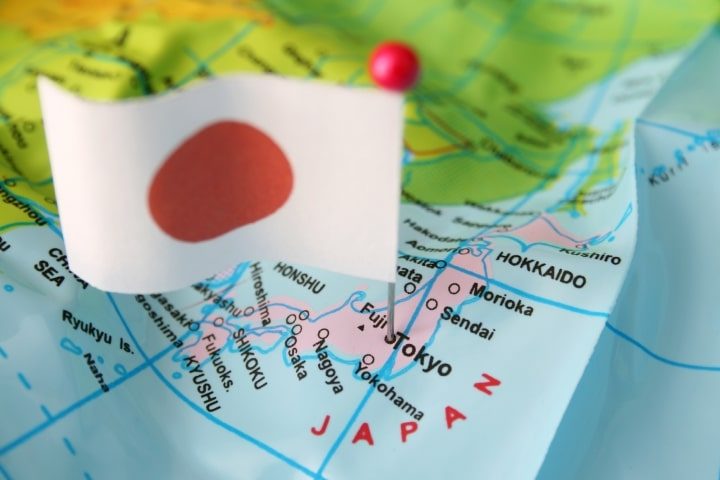
Japan and NATO are hoping to boost cooperation in cyberspace, with the U.S.-led military alliance hoping to open its first liaison office in Tokyo, according to a May 3 report by Nikkei Asia.
Citing both Japanese and NATO officials, the news outlet reported that the slated one-person station would permit NATO to have occasional consultations with regional “partners” such as Australia, New Zealand, and South Korea.
Since Japanese Prime Minister Fumio Kishida and NATO Secretary General Jens Stoltenberg first suggested the idea of a NATO liaison office earlier this year, plans for setting up the office have been underway, based on Nikkei sources.
Nikkei also pointed out that as host nations usually provided comparable NATO stations, it would indicate a new phase in the Japan-NATO defense collaboration if Tokyo eventually bankrolls a Western military foothold in Japan.
Besides, Tokyo supposedly hopes to ink an Individually Tailored Partnership Program with the bloc before the upcoming NATO summit in Lithuania in July. Japan and NATO are reportedly seeking to boost cooperation in addressing cyber threats, emerging and disruptive technologies, as well as tackling disinformation, Nikkei reported.
NATO spokesperson Oana Lungescu said the alliance would not delve into details of ongoing discussions about the setting up of a Japanese office for the bloc.
“NATO has offices and liaison arrangements with a number of international organizations and partner countries, and allies regularly assess those liaison arrangements to ensure that they best serve the needs of both NATO and our partners,” she said.
“Practical cooperation includes a wide range of areas, including cyber defense, maritime security, humanitarian assistance and disaster relief, non-proliferation, science and technology, and human security,” she said.
Japanese Foreign Minister Yoshimasa Hayashi hitherto declared that Tokyo was open to an increased presence of NATO member states in the Indo-Pacific region, amid China’s military assertiveness.
During an extended session of the two-day NATO foreign ministerial meeting in Brussels, Hayashi promised to step up Japan’s cooperation with NATO as well.
Japan cannot attain its aim of having a “free and open Indo-Pacific,” a term popularized by the late former Japanese Prime Minister Shinzo Abe, on its own, Hayashi was cited as saying by Japan’s Kyodo news agency.
In its 2022 Strategic Concept, NATO openly unveiled plans to ramp up cooperation in the Indo-Pacific region by highlighting “systemic challenges” to Euro-Atlantic security from China and Russia, with the bloc portraying Moscow as its “most significant and direct threat.” On that note, the bloc included foreign ministers from Japan, New Zealand, and Australia, as well as South Korea’s deputy foreign minister, at its meeting of NATO ministers of foreign affairs on April 4.
“Primarily, we’ve been focusing with these countries on how we can share best practices and unique insights on the hybrid tactics that countries like the PRC and Russia increasingly rely on,” U.S. Ambassador to NATO Julianne Smith said.
“We find it incredibly helpful and informative and productive to have our Indo-Pacific partners join us for meetings here at NATO headquarters, to talk about things like threats to critical infrastructure or how to build resilience or how to defend against cyber attacks,” she added.
Highlighting that more than 50 countries are presently offering security assistance to Ukraine to fend off Russian actions, Smith claimed many more countries are offering humanitarian and economic aid to Ukraine, alleging that such support sends “a very strong signal” to other countries that may seek to infringe upon another state’s sovereignty.
“Some of the countries that we watch very closely, such as the PRC, but also Iran, are taking note of what’s happening in Ukraine. And not only taking note of what’s happening on the ground, but they’re taking note of the global support that’s been on full display to stand behind Ukraine,” Smith remarked.
The support has been shown in terms of voting to condemn Russian actions in the United Nations, Smith elaborated.
“I think all of that sends a very, very strong signal to the PRC in particular,” she said.
NATO’s efforts to increase its clout in Asia have already sparked denunciations from both Moscow and Beijing. In March, Russian President Vladimir Putin lambasted the drive to set up a “global NATO,” claiming such moves mirrored the actions of Nazi Germany, Italy, and Japan in the 1930s. Putin also added that the U.K. and Japan recently signed a reciprocal military access agreement. “That’s why Western analysts themselves — not us — are saying that the West is starting to build a new axis similar to the one that was created back in the 30s by the fascist regimes in Germany and Italy, and militaristic Japan.”
Speaking in an interview with Russia 1 TV, Putin rejected claims that Moscow and Beijing are setting up a military bloc to counter the West. Putin insisted that bilateral cooperation with China was “transparent,” and that Russia and China do not hide information about their defense relations.
On the other hand, Putin continued, the United States is establishing new alliances, citing NATO’s new Strategic Concept as an illustration of such efforts. “It directly stipulates that NATO is going to develop relations with nations in the Asia-Pacific region, including New Zealand, Australia and South Korea,” he said.
Russian Deputy Foreign Minister Sergey Ryabkov stated at the time that NATO’s claim that Moscow was a threat was unfounded. Communist China has also criticized NATO’s Strategic Concept, claiming it was filled with distorted facts and a Cold War mentality that smears Beijing’s foreign policy.
Mao Ning, spokesperson for the Chinese Foreign Ministry, said Asia was a “promising land for cooperation and development and should not be a battle arena for geopolitics.”
“NATO’s continual eastward expansion in the Asia-Pacific, interference in regional affairs, attempts to destroy regional peace and stability, and push for bloc confrontation calls for high vigilance from countries in the region,” Mao said at a press conference.
Based on reports from AA.com, China’s top diplomat Qin Gang in March claimed the “Indo-Pacific Strategy” is an “attempt to gang up to form exclusive blocs, to provoke a confrontation by plotting an Asia-Pacific version of NATO.”
China’s reaction also came before the third summit of the Quad grouping — which Japan is a member of — in Sydney on 24 May.
Australian Prime Minister Scott Morrison, Japanese Prime Minister Yoshihide Suga, Indian Prime Minister Narendra Modi, and U.S. President Joe Biden are expected to attend the summit.
Beijing also previously slammed the Quad grouping, saying it is a closed and exclusive “clique” targeting China.



